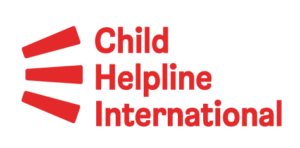About a month after the start of the war in Ukraine, BørneTelefonen began offering its services in Ukrainian, like many other child helplines in European countries where Ukrainians have been forced to flee. The child helpline – including its chat service – is available in Ukrainian on weekdays from 12.00 to 16.00, and during the time this service has been available, volunteers have had more than 800 conversations with Ukrainian children, young people, and their parents and caregivers.
As expected, the most common reason for calls is the issue of forced relocation to another country. War, loss and sadness, integration and adaptation to the new reality have filled the lives of many Ukrainians. We conducted some initial educational work with children, explaining to them why the child helpline had been created, and helping them understand how it works and why it is trustworthy.
However, the biggest challenge in the work of the helpline was actually informing newly-arrived Ukrainians in Denmark about our existence in the first place! It was not easy to find communication channels through which we could tell children and young people about our readiness to help. Using social media proved not to be the most effective means of communication due to the specifics of our target audience.
Sending flyers and posters about the child helpline to schools was a good idea but it did not really have the desired effect, as in most classes communication between teachers and Ukrainian students was rather limited due to the language barrier. Children were not fully understanding what the child helpline was for, or when it could be used. Our goal was not only to inform them about the work of the child helpline, but also to inspire trust and their desire to seek help.
Many children and young people are unfamiliar with the concept of a child helpline. They struggle to have confidence in its anonymity, and they often believe that complaining about conflict or neglect is futile, shameful and sometimes dangerous: Children and young people who come from villages or small towns sometimes experience isolation and stigmatization in their community because they have made disclosures to a child helpline. However, we have managed to spread the word about our child helpline and gain the trust of those who have called us.
Physical visits to classrooms – with presentations and discussions in Ukrainian, where the students could ask us questions about the child helpline – have given us great opportunities to reach out to Ukrainian children and young people.
Due to the large number of newly-arrived school-age children in Denmark, many schools set up welcome and integration classes. Often there are several such classes in one school, sometimes with children with a significant age difference. Usually these children come from different regions of Ukraine and have a wide range of experiences. The number of children in the classes can vary from 10 to 25 pupils.
We started to visit such classes for Ukrainian children in different cities in Denmark, and it turned out to be a challenging but very interesting task. Although the search for classes, the process of communicating with teachers and the long hours of travelling to the schools could be exhausting, the real reward in the end was the interesting hours spent with the students.
When we told children and young people about the mission and tasks of the child helpline, about children’s rights and the possibilities of protecting them, we saw interest and hope in their eyes, which was incredibly inspiring.
Over the past year, we have visited more than 40 schools, made presentations in 71 welcome and integration classes, and looked into the eyes of 844 children. Being there for them, giving them hope and a sense of security, reminding them of their rights and telling them about possible help is an invaluable experience and an unforgettable experience that gives them the strength to move forward in these difficult times.
The child helpline services for Ukrainians in Denmark continues to operate from Monday to Friday. You can call us, or write to the chat at www.116111.dk. Our consultants are ready to listen, to give support and to help every child or young person in need in all available ways.
Iryna Garvanko
Child Counsellor, BørneTelefonen
BørneTelefonen has been operating in Denmark since 1987 and has been available around the clock since November 2021. It is a child helpline where children and young people can call for advice, support, or simply to contact an adult who has time to listen to them.
Every day, all year round, volunteers at BørneTelefonen are ready to listen and support young people, children and adults, and answer any questions they may have.


